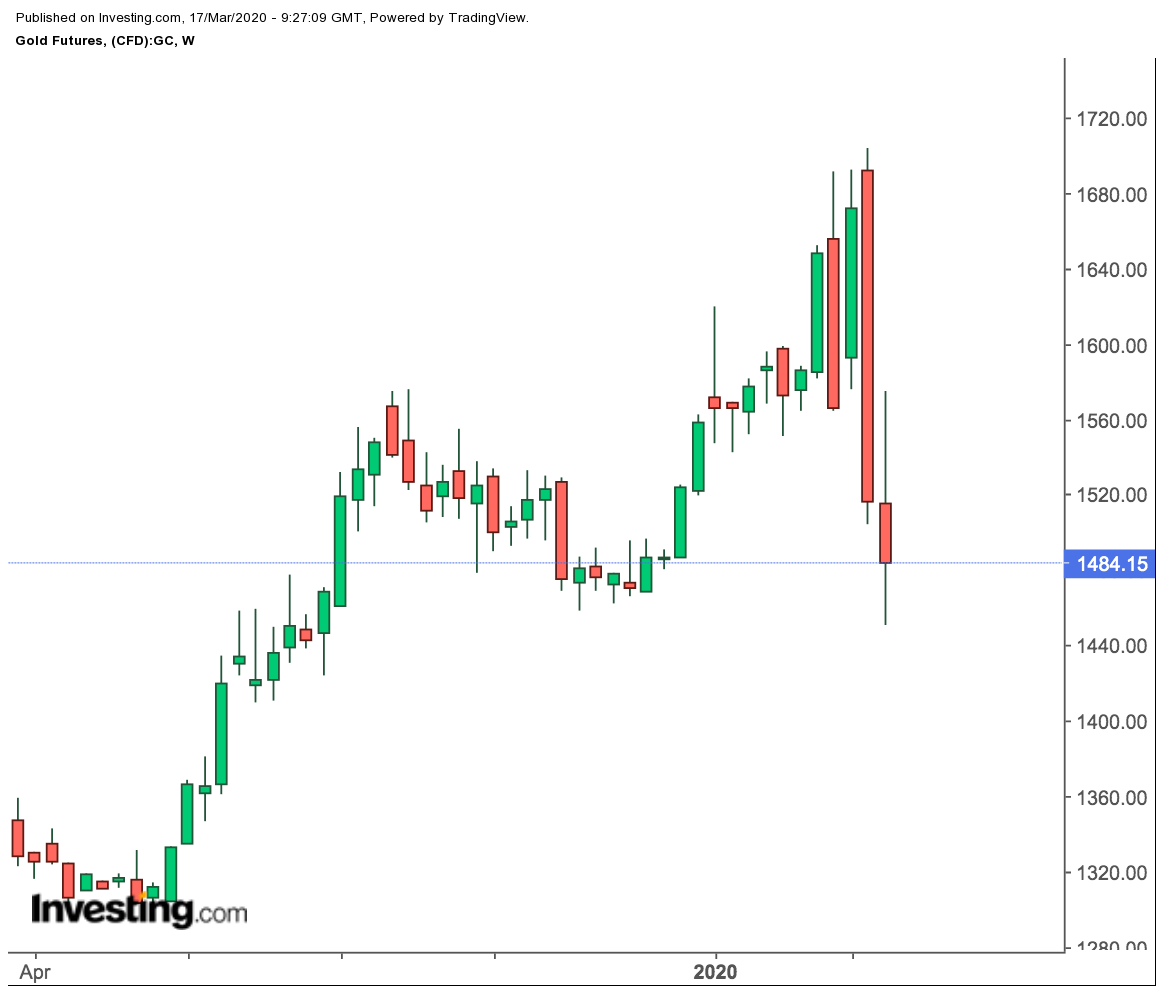Under ordinary circumstances, one emergency rate cut should have been enough to do it for Wall Street. But these are extraordinary times, so even two unscheduled Fed cuts haven’t worked their magic — neither for stocks nor for gold.
But something else also happened on Monday that should have caused any gold bug’s ears to perk up. It was Donald Trump’s acknowledgement for the first time that the United States “may be” headed for a recession as a result of the coronavirus crisis, snapping almost 11 years of record economic growth.
Throughout his time in office, the President has been known to talk up the stock market rather than down — even in suspect times, like the early days of this pandemic.
So, to finally hear directly from him that we could have two straight quarters or more of economic decline — which technically denote a recession — was quite something. Wall Street tanked further by Monday’s close after Trump's statement at the Covid-19 daily briefing, handing the Dow its worst day ever with a 3,000-point loss.
Gold has also lost quite a bit over the past week, with futures falling unceremoniously from seven-year highs above $1,704 per ounce to settle at $1,486.50 on Monday. They did return to $1,500 territory in Monday’s post-settlement trade but conceded that support again in Tuesday’s Asian trading.
Will “Recession” Mean A Thing For Gold?
If events of the past week are any indication, gold’s hold at the high $1,400s could remain tenuous as well. So, it’s worth asking whether Trump’s acknowledgment of a potential recession could change the yellow metal’s prospects, since even bazooka-powered stimulus by the Federal Reserve doesn’t seem to be doing a thing.
If nothing else, it’s a valid question for any punter in gold since Trump’s testimony was the biggest markets story on Monday, aside from the Fed’s spectacularly failure, its one-point rate cut and $700 billion bond-buying pledge, which was second only to the Dow’s epic loss.
The short answer to that question now is “no,” though that could change over time.
As most market participants will have realized, what’s happening to gold now isn’t even fundamentally right. As a premier safe haven — besides U.S. Treasurys, of course — gold ought to be at $1,800 an ounce, maybe even a new record above $1,900, given the sheer uncertainty in almost everything else because of Covid-19.
Instead, due to its relative value — viz-a-viz the Dow which has lost almost 30% on the year, gold has dropped just 3% — the yellow metal has become an ATM for those with losses and margin calls to cover in equities. The super liquidity of the gold market is as much a bane as a boon for the metal, making it easy to dump at the slightest whim.
Next Low Could Take Gold Below $1,450, Then Under $1,400
Based on charts, if gold futures were to take out the November low of $1,447.10 — which is just about $40 away — then the next low to defend would be $1,382.80 from July.
From where the market is now, that’s about $100 away. Yet, given last week’s liquidation in gold, which reached the pace of a plunging elevator car without cables, it seems like $1,400 would be a dubious defense too.
I’m not the only one with this view.
Jeffrey Halley, a commodities veteran at OANDA, has somewhat similar thoughts.
“Although the fundamental environment for gold is almost screaming that it should be higher, we must respect what the markets and price action are telling us,” Halley wrote in a Tuesday note.
He adds:
“However, I do note that the long-term technical support level at $1,450 an ounce held handsomely overnight and was the overnight low. Any gold bulls still standing may wish to use that as a starting point to re-enter the market. I will note, however, that a weekly close below that level implies deeper losses to sub-1400.00 an ounce.”
